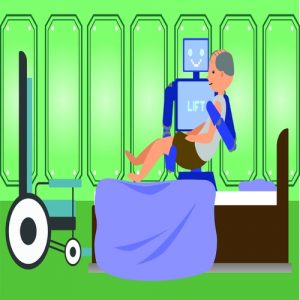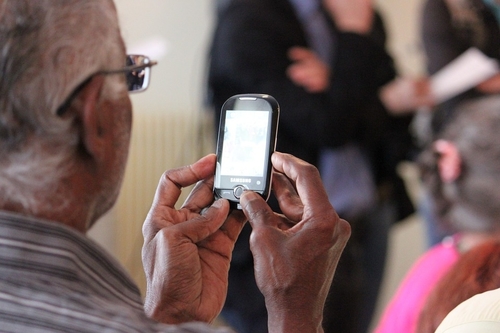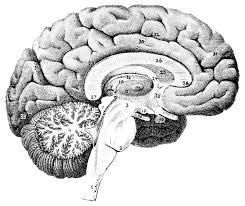
As much as you like to imagine everyone is good, there are people in the world that steal. They do this through scams. Scams can hurt anyone at any age. They can rob people of all their savings. Keep an eye for these 10 retirement scams.

Top 10 Retirement Scams
According to the Federal Trade Commission data, there were 1.1 million frauds reported. 21% of the victims suffered a financial loss. It totaled $905 million, that’s an average $429 a person.
People who are close to retiring tend to lose more money than any other age group.
1. Medicare Card Scams
Right now the federal government is working on replacing all Medicare cards with new ones. This is because the old ones have Social Security numbers on them.
This makes it easy for identity theft to happen.
Everyone should have a new card by April 2019
The problem with this is that phone scammers are using this as an opportunity to defraud Medicare recipients. The FTC is getting reports that various scam tactics like callers claiming to be Medicare representatives are asking to verify personal information to people and offering to send you a new card for a fee. The real cards are paper and have no fee.
One other type is someone calls and says that your old card has a balance that needs to be put on the new one. Of course, you have to give your account and routing numbers.
2. Social Security Suspension Scams
A scam the FTC is seeing a lot are phone calls from someone claiming to be with the Social Security Administration. They tell you your Social Security number has been suspended. They can claim it’s due to possible criminal activity.
They will sound very convincing.
They will claim that all you have to do get to your SS number back is give the caller your personal info, including the details of the bank account where your benefits are being deposited.
The real SS Administration is not going to call you and say your benefits are suspended. Instead open an online account with Social Security.
3. Gift Card Scams
The National Consumers League’s site, Fraud.org, has reported a spike in fraud involving gift cards. Thieves are stealing the numbers, including the scratch off codes while they’re still hanging on the sales rack in stores.
Once the card is purchased and activated at the register, they drain it of its value by making purchases. There’s software that will help them see the balance and be alerted when the card is activated.
Only buy cards that are in secure packaging. Or buy electronic gifts cards that get delivered by email.
4. Sweepstakes Fake Check
We all dream of opening our door and there being a big check with our name on it. But, the reality is a bit rough.
See, scammers are using winning sweepstakes as a way to take your money. If you follow their instructions, it will cost you a lot of money.
Americans have reported losing $95 million to sweepstake scams.
You can get a congratulations letter in the mail with a small amount of money in it. This is supposed to be part of the check. You are supposed to deposit it and wire back some of the money to cover fees, taxes, or other expenses. Once that’s done, you’ll get the rest of your money.
What will really happen is that the check will bounce, you’ll be paying the bank fees, and any part of the deposit you already spent and any money you sent to the scammers.
Checks take a while to clear and by then the scammers are long gone.
5. Utility Bill Scams
Scammers are calling people threatening to cut off electricity, gas, or water services if bills aren’t paid immediately. They demand payment over the phone by credit card, or request unusual payment methods like gift cards, reloadable cash cards, or even cryptocurrencies.
Utility companies never work this way. Scammers are also sending mail and emails too. Make sure to keep your bills in order.
6. Fake Family Emergencies
This is also known as the grandparent scam. This is because scammers usually target the elderly late at night to cause more confusion.
Grandparents will get a phone call from someone posing as a friend of their grandchild, a police officer, or a lawyer. They will say that the grandkid needs help fast. The grandparents will also be urged not to tell the parents or anyone else.
They want money wired to them to cover hospital bills, bail, or a plane ticket home. Whatever works for the story.
A scary variation of this is a caller saying they are a kidnapper and demand ransom for the safe return of their grandchild.
How do these scammers know all these personal things about you? Social media. They can learn details about you and your family to sound more convincing.
7. Romance Scams
People get lonely. This makes them easy targets on dating sites. Scammers are pretending to love them. This scam particularly targets older people.
A common thread of romance scams is that the scammer will refuse to meet you. They can claim to be overseas on business or stationed abroad in the military.
The first request for money could be for a plane ticket to visit. Once the wire goes through though, they will make excuses not to visit. Then because they have your trust, they will make up family emergencies, accidents, or business setbacks.
8. Credit Card Skimming
Make sure to keep a close eye on any devices you are about to put your debit or credit card into. Gas pumps for example are a common target for scanners.
They will put “skimming” devices on top of the real units to steal your account information when you put in your card.
You can pay in cash or pay with a card inside to completely avoid this.
9. Phony Vacation Rentals
Many people who are retired travel, as they should, but this leaves you open to scammers. The median loss for travel related fraud, including false packages, was around $1700 in 2017.
Vacation rentals are a favorite among scammers. They will even go as far as using attractive photos and descriptions of places taken from real sites.
Sites like Airbnb.com and VRBO.com are always vigilant against scammers. These are good sites to use for travel.
10. Government Imposter Scams
This type is the biggest scam tracked by the FTC. It causes more than $328 million in losses. These usually are when a person pretends to be government official. But, there is also pretending to be friends, family, love interests, business representatives, and tech support workers.
Be on guard if anyone comes to you and asks for info or money.
Read more here.



















